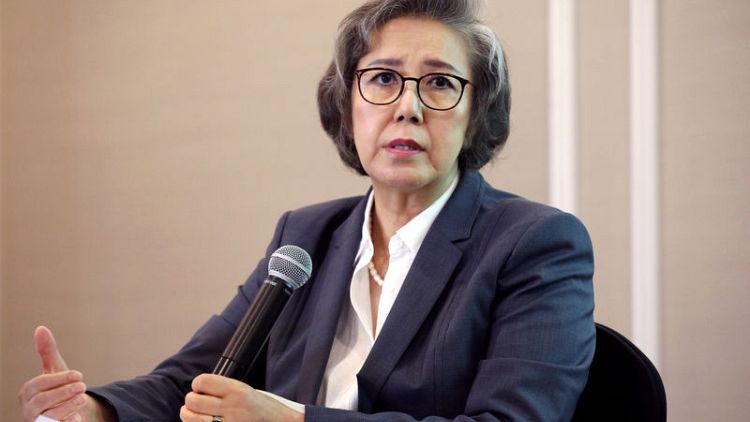KUALA LUMPUR (Reuters) - Sanctions imposed this week by the United States on Myanmar's military leaders over human rights abuses against Rohingya Muslims do not go far enough, U.N. special rapport Yanghee Lee said on Thursday.
The United States banned Myanmar military Commander-in-Chief Min Aung Hlaing, three other senior commanders and their families from entering the United States in the strongest steps yet taken by Washington in response to the massacre of Rohingya Muslims in Myanmar.
But Lee said a travel ban was not enough and called for freezing the assets of the commanders.
"(The ban) does not go far enough and it should go further, and the parameters of those sanctions should go further too," she told reporters in Kuala Lumpur.
"They were never going to travel to the U.S... let's be realistic."
Lee said the sanctions - which covered Min Aung Hlaing, his deputy Soe Win, and brigadier generals Than Oo and Aung Aung - should also be extended to two more military leaders identified in a U.N. investigators report in 2018.
The report, compiled by the Independent International Fact-Finding Mission on Myanmar, had called for the six generals to be tried for genocide.
Lee said reports from Myanmar in recent weeks suggested that human rights violations and abuses committed by the army and insurgents against civilian populations may be getting worse.
Last month, Lee had said the army may be committing gross human rights violations under cover of a mobile phone blackout in Myanmar's Rakhine and Chin states.
On Thursday, Lee said the blackout had left many villages unprepared for severe monsoon floods in the area.
It has also hampered disaster relief and humanitarian responses to the floods, she added.
"The question is, did the Myanmar government impose the ban to inflict more harm on the people of Rakhine?"
A 2017 military crackdown in Myanmar drove more than 730,000 Rohingya Muslims to flee to neighbouring Bangladesh, according to U.N. figures.
U.N. investigators have said Myanmar's operation included mass killings, gang rapes and arson and was executed with "genocidal intent." Myanmar denies the charge.
(Reporting by Rozanna Latiff; Editing by Nick Macfie)


